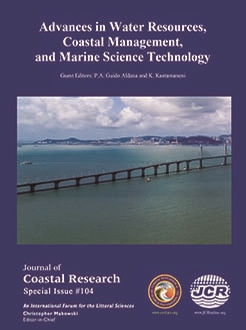Yan, Y.; Han, Y.; Zhang, P.H., and Wang, H.F., 2020. Water quality detection based on FCN and embedded system. In: Guido Aldana, P.A. and Kantamaneni, K. (eds.), Advances in Water Resources, Coastal Management, and Marine Science Technology. Journal of Coastal Research, Special Issue No. 104, pp. 72–76. Coconut Creek (Florida), ISSN 0749-0208.
In this paper, the convolutional neural network (CNN) based on deep learning is applied to embedded systems. After summarizing the shortcomings of traditional algorithms, the image processing technology of full convolutional neural network (FCN) is adopted to study a method for online water quality measurement, which solves the key problem of image recognition. In view of the complex nonlinear characteristics of water quality related data, the full convolutional neural network is used to train water quality data, determine the mapping relationship between input and output, and input the obtained relationship into the embedded system to form a water quality detection system, so as to quickly and efficiently detect water pollution. The experimental results show that the accuracy of the predicted grade and the measured grade of water quality in the test area can be as high as 90%.





